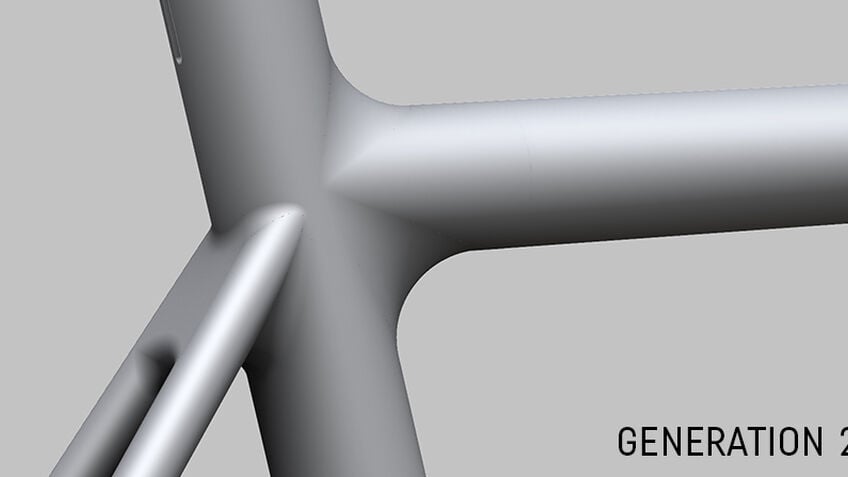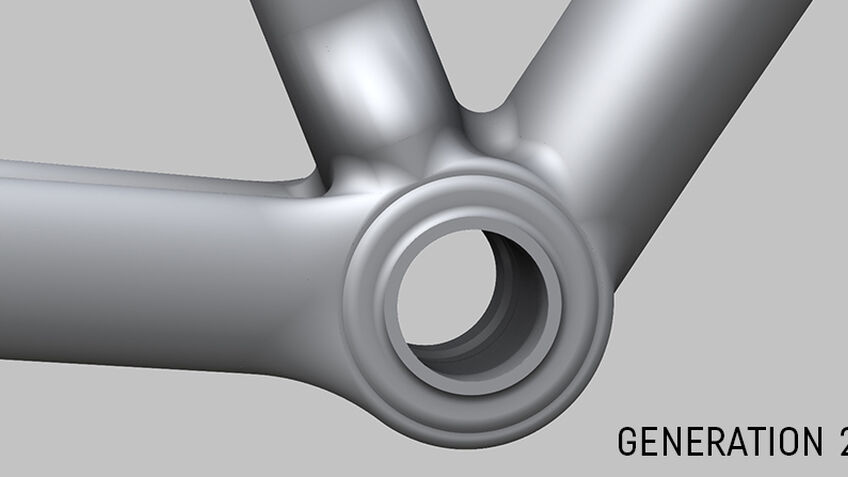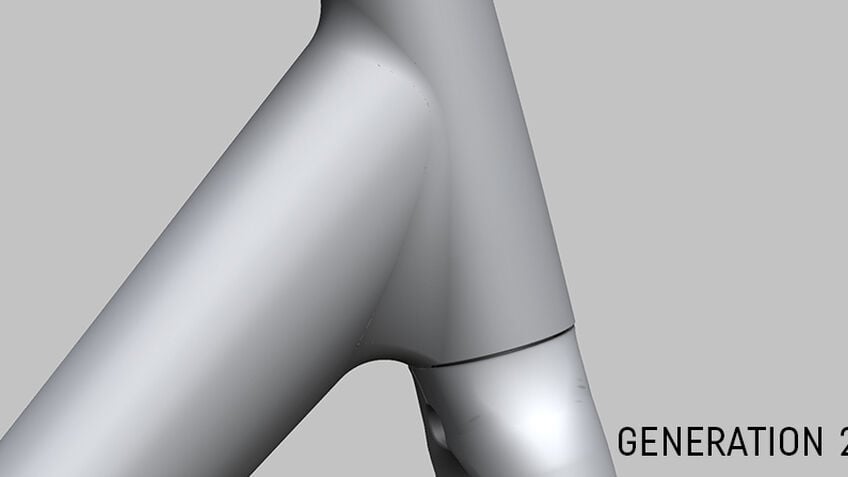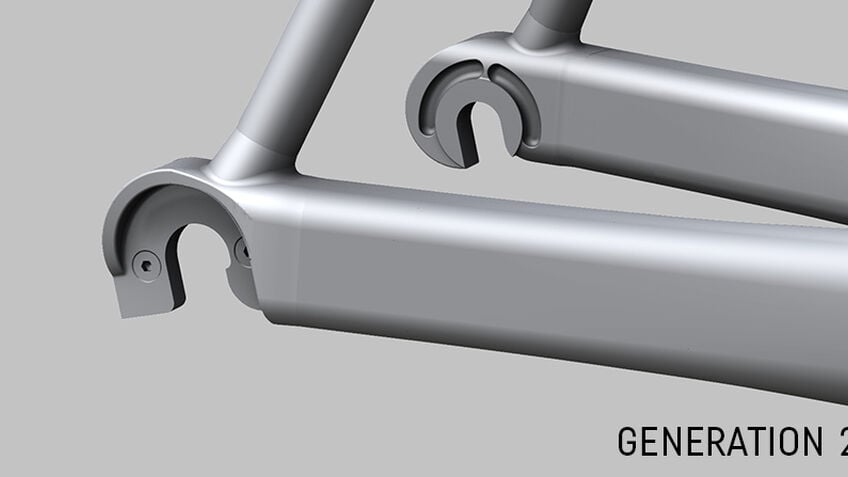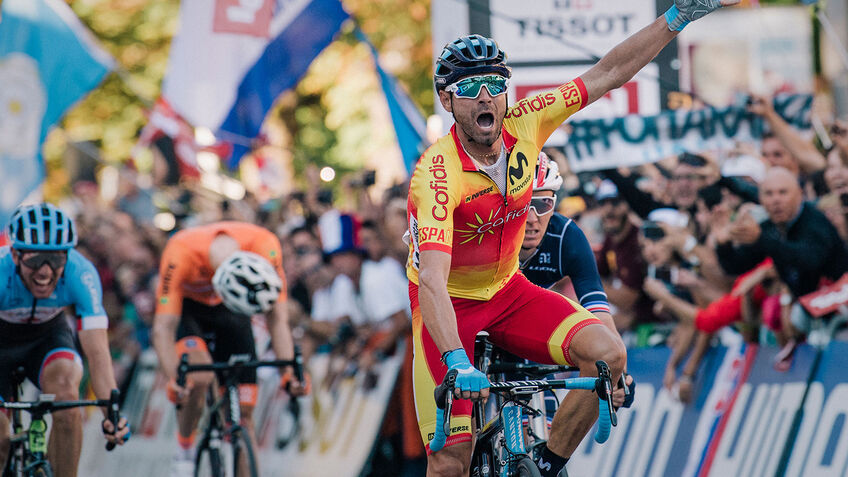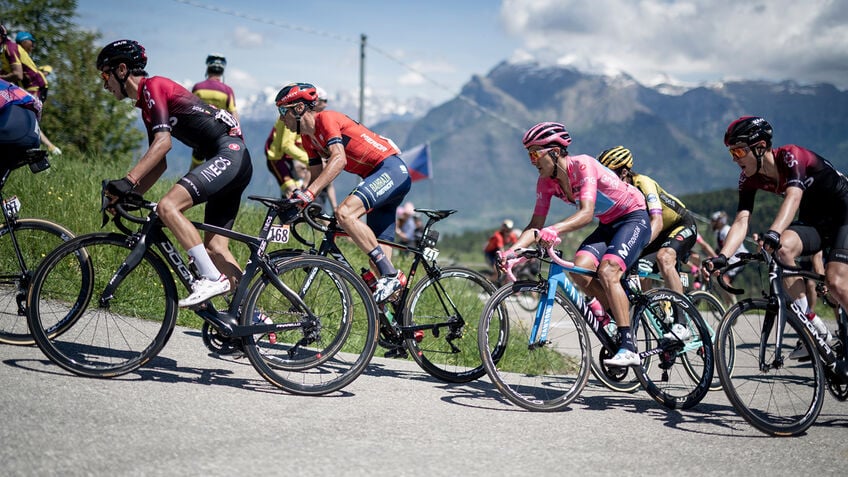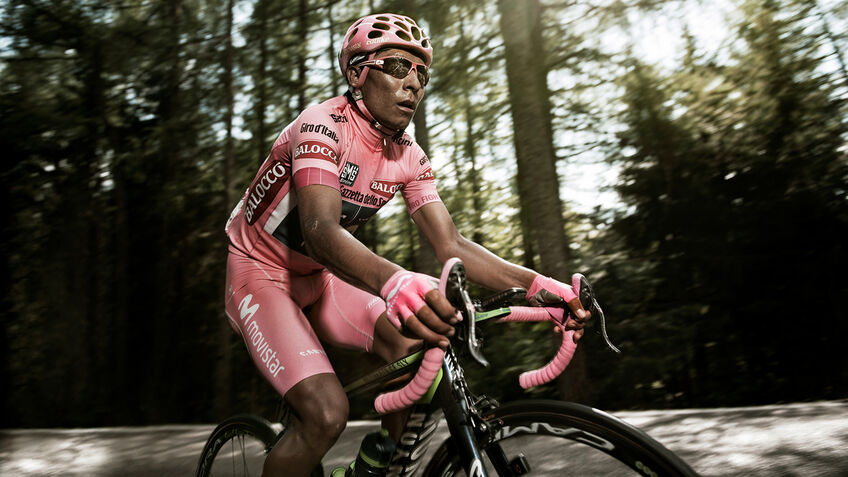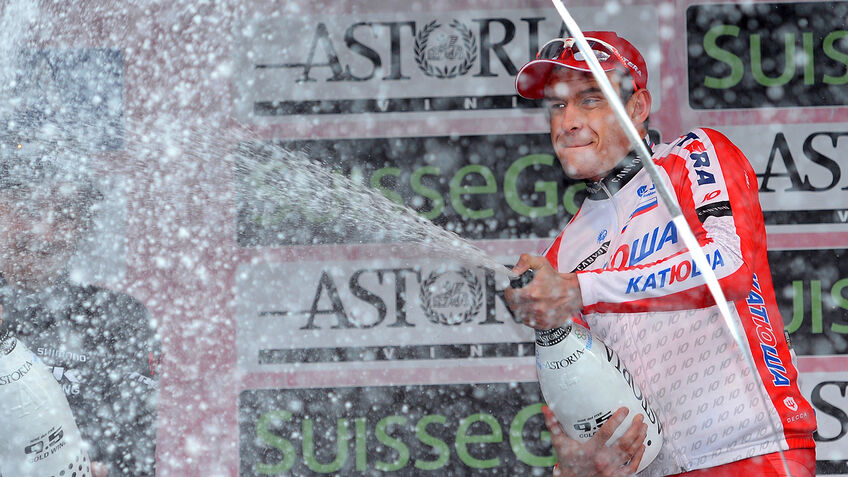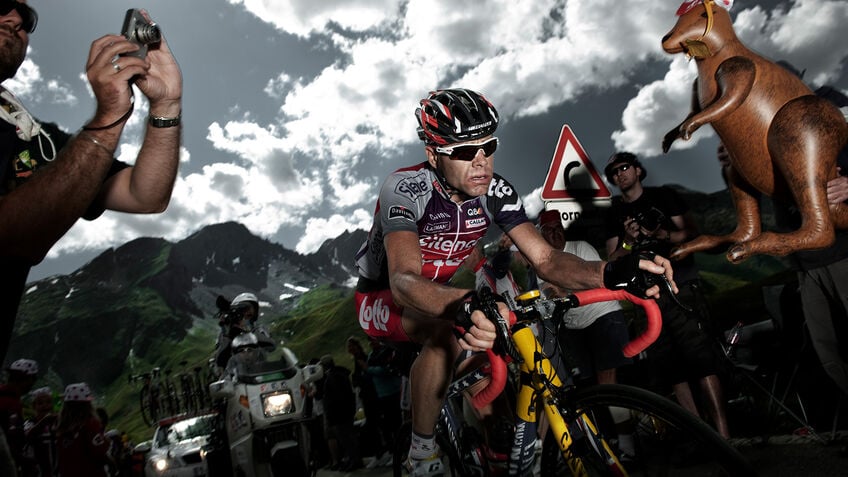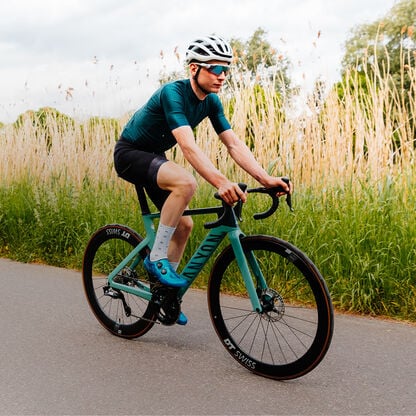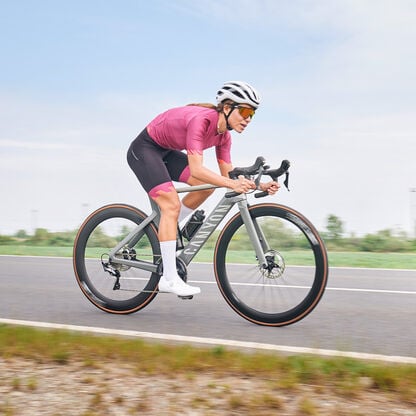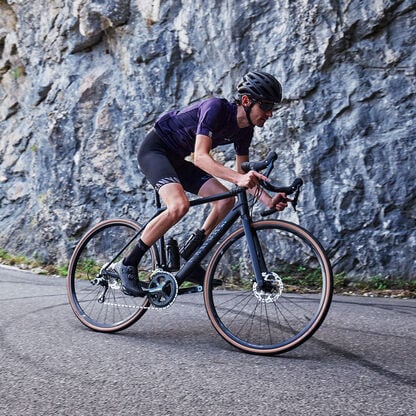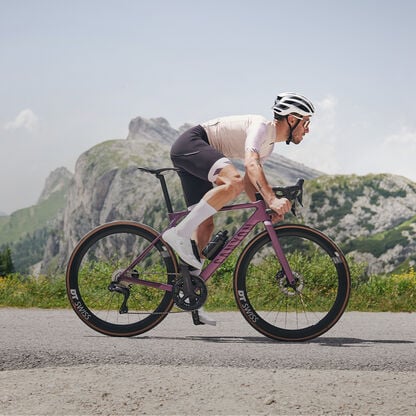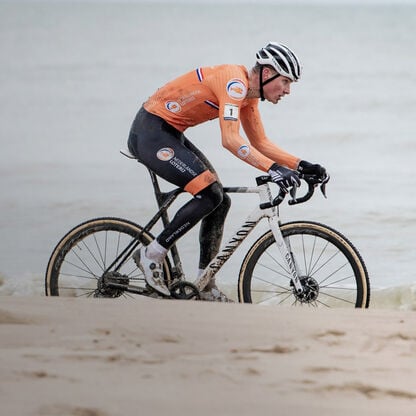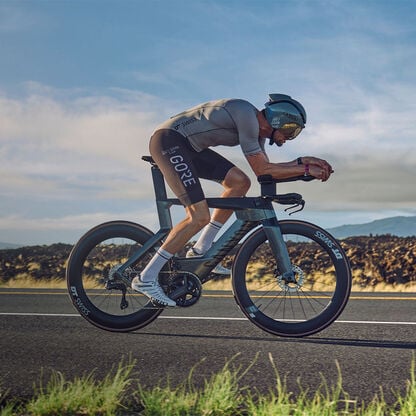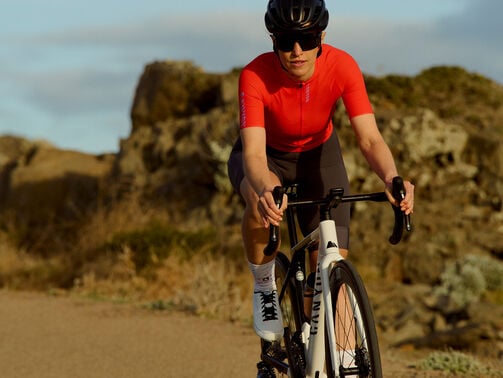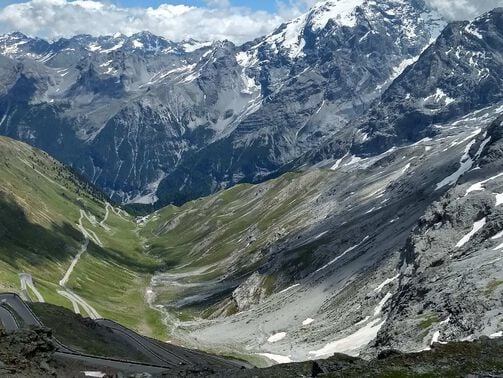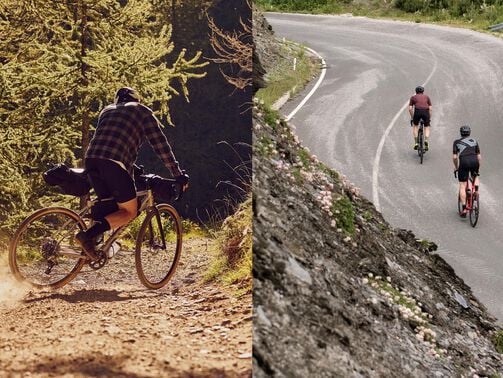Evolution of the Canyon Ultimate
The fifth generation Canyon Ultimate is finally here. We take a look back in the archives to see how far this iconic bike has come.

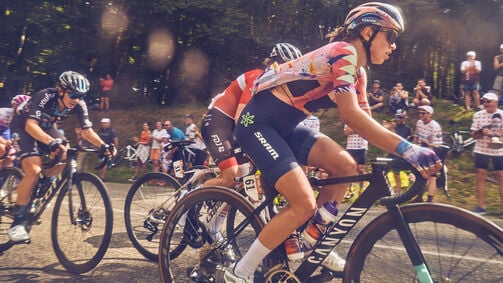
The fifth generation Canyon Ultimate has arrived and with it almost 20 years of innovation. Since its unveiling at Eurobike in 2004, this iconic road bike has been at the height of road performance.
The Canyon Ultimate has become one of the most recognisable bikes on the road after coming out on top in numerous group tests with the cycling media. World championships, Grand Tours and Monuments have been won on board the Canyon Ultimate. It’s a bike that embodies and represents the Canyon brand. We create the best machines possible for each and every rider whether they’re on the World Tour or their home roads.
The Ultimate is the only bike you will find yourself wanting to own.
Lukas Birr - Lead engineer for the fifth generation Ultimate
The first generation Canyon Ultimate
When the Canyon Ultimate (then called the Canyon Carbon Ultimate) launched in 2004, the bike was at the forefront of engineering. Consumers wanted the stiffest and lightest bikes possible, so our research and development team set out to create this with the first generation Ultimate.
As a manufacturer, we started to challenge road cycling traditions. No longer did road bikes have to be clunky, heavy and cumbersome. Carbon fibre technology was just taking off, and is now, of course, the norm for all road bikes.
Australian professional rider Baden Cooke took the first generation Ultimate to victory during the 2007 Tour Down Under. Not only was this an incredible achievement for the team, but also for Canyon.
We knew the bike could win, the riders knew the bike could win. And in its first season at the highest level, we were proven right.
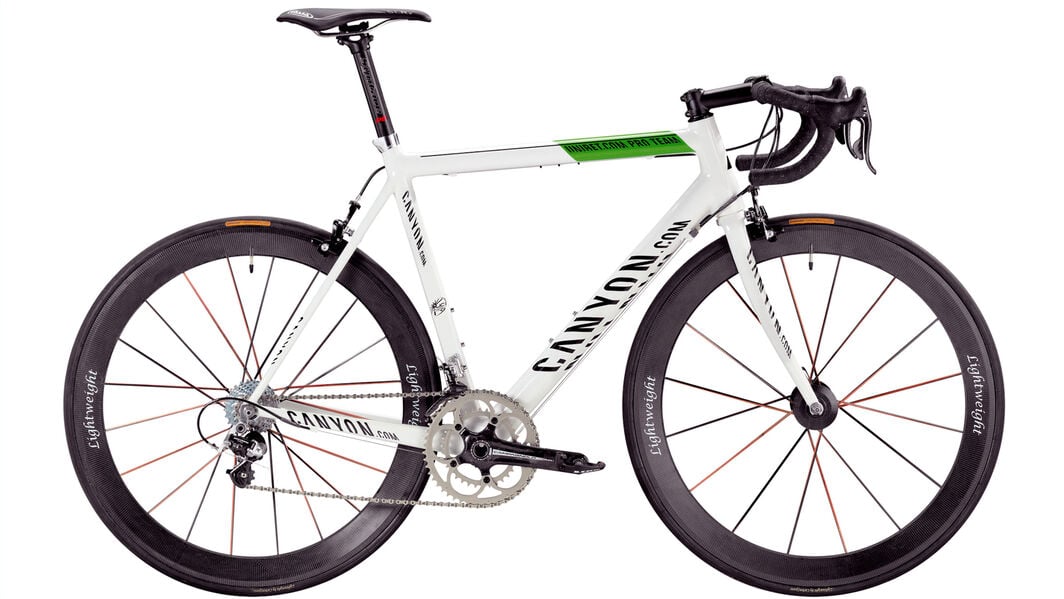
2nd Generation Ultimate: a story of world championships and patents
After a professional victory on board the first generation Ultimate, we were thrust into the world of global players in the bike industry. Teams, riders and fans around the world began to pay attention. With eyes on Canyon as a manufacturer of growing reputation, we began the challenge of succeeding the first model.
The second generation Ultimate was launched in 2007, again at Eurobike. STW was still a clear point of difference for this model. Look closer though and there was more to it.
The bike featured a patented asymmetric seat tube to increase the bike’s stiffness. This housed a 27.2 mm seatpost for additional comfort. The second generation Ultimate also featured Canyon Engineered Parts (CEP) including the forks and eventually seatposts.
Engineering and design are our greatest strengths. The in-house team constantly refine and hone every Canyon Engineered Part to make the next generation bikes even better than their predecessors.
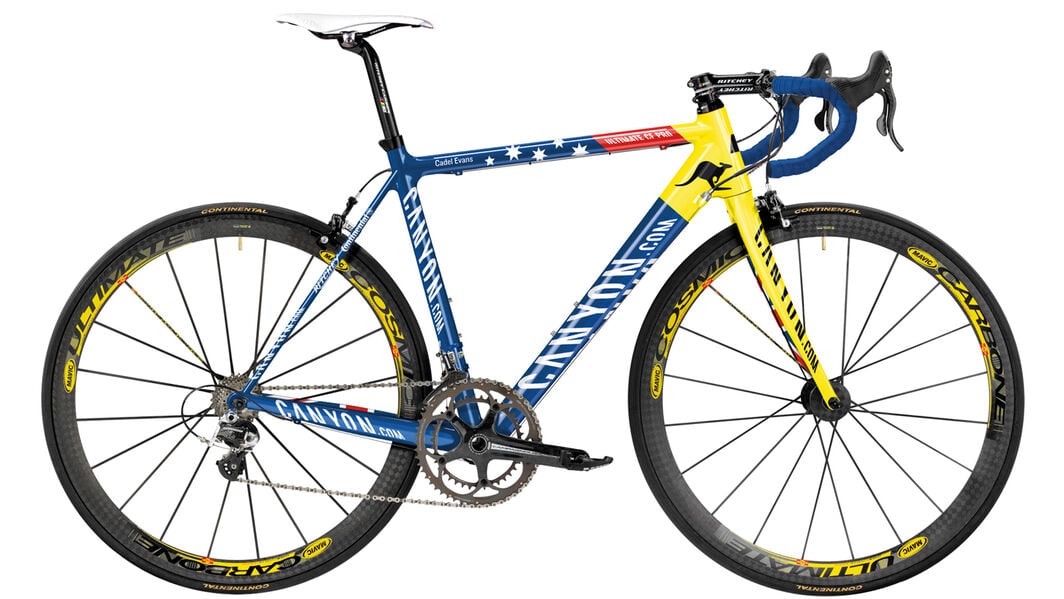
Another Australian rider, Cadel Evans, took the bike by the bars to take a solo victory at the 2009 World Championships in Mendrisio, Switzerland. The Canyon Ultimate was part of world cycling history. Other second generation Ultimate victories included the bike’s first Monument success. Philippe Gilbert crossed the line with his hands in the air during the 103rd Giro di Lombardia, further proving the bike’s winning credentials.
But the most glorious wins are on cycling’s highest stage. In 2011 when German pro Andre Greipel gave the Ultimate its first sprinting success against Mark Cavendish during the 2011 Tour de France in Carmaux we knew we had a complete race bike that climbers and sprinters alike could win on.
3rd Generation Ultimate: Aesthetics and aerodynamics
The third generation Ultimate paved the way for Canyon to establish itself as a leading manufacturer of performance race bikes. With that in mind, we refined the bike’s modern, straight-edged look which has since become Canyon’s signature design.
For the first time, we routed the cables inside the downtube to smooth the airflow at the front of the bike. Not only did this increase the bike’s aerodynamics but it makes the bike look a lot neater. Engineers swapped the dropouts from aluminium to carbon and designed wider seat stays to increase the stiffness in the rear triangle.
What resulted was a bike that reacted effortlessly to its rider’s power. No better example of this is when Nairo Quintana (Movistar Team) won the 2014 Giro d’Italia. It was the bike’s first Grand Tour victory. But there was more to come.
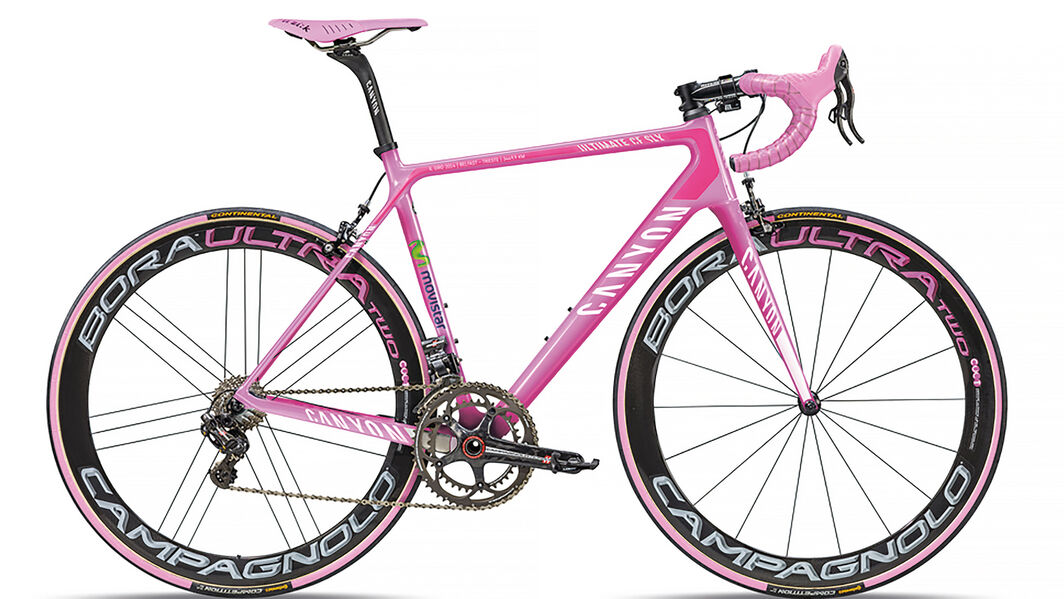
4th Generation Ultimate: A story of accelerated innovation
Following the success of the Ultimate over the previous three generations, we had big boots to fill in order to impress with the fourth generation. And we set our expectations very high when the bike debuted at the Tour de France in 2015.
Our investment in the R&D and engineering departments was not without a strategy. We knew that to be the best, we had to work with the best. We bolstered the team with some of the smartest brains in the business and sourced the best materials in the world.
It was during the development of the fourth generation Ultimate that Canyon turned to aerodynamics. The challenge now was how to balance aerodynamics, stiffness and weight.
The wide, flat downtube from the third generation model was archived. This new model featured aero tube profiles and CEP cockpits to help riders carve their way through the air. Also aiding this was the superior superlight carbon layup creating a stiff and streamlined race winning bike.
Following his Giro d’Italia victory in 2014, Nairo Quintana put the fourth generation model to the test during the Vuelta a España in 2016. The result? He won, of course.
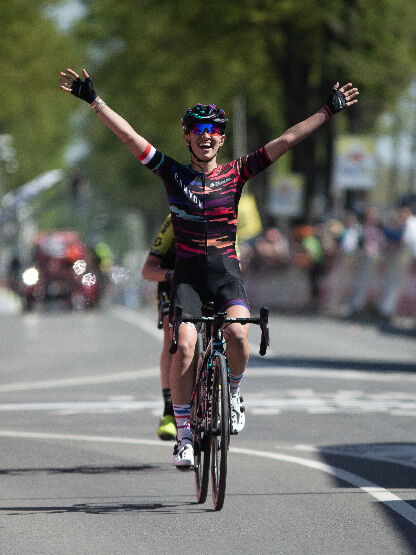
Throughout the next 4 years, we continued to develop the bike. The introduction of disc brakes in late 2016 increased control across the SL and SLX models. Our women’s specific models were born in 2017, on which Kasia Niewiadoma won Amstel Gold in 2019. The Ultimate won yet another World Championship piloted by Alejandro Valverde in 2018. Turns out you can teach an old bike rider new tricks if he has the right tool.
2019 was a pivotal year for the fourth generation Ultimate. The EVO carbon layup models created a sub 6 kg disc brake road bike. As one of the lightest UCI-approved bikes on the market, this was new territory for Canyon.
Another Giro d’Italia victory followed off the back of this. Columbian rider Richard Carapaz dominated the race on board the fourth generation Ultimate. Was there anything this bike couldn’t do?
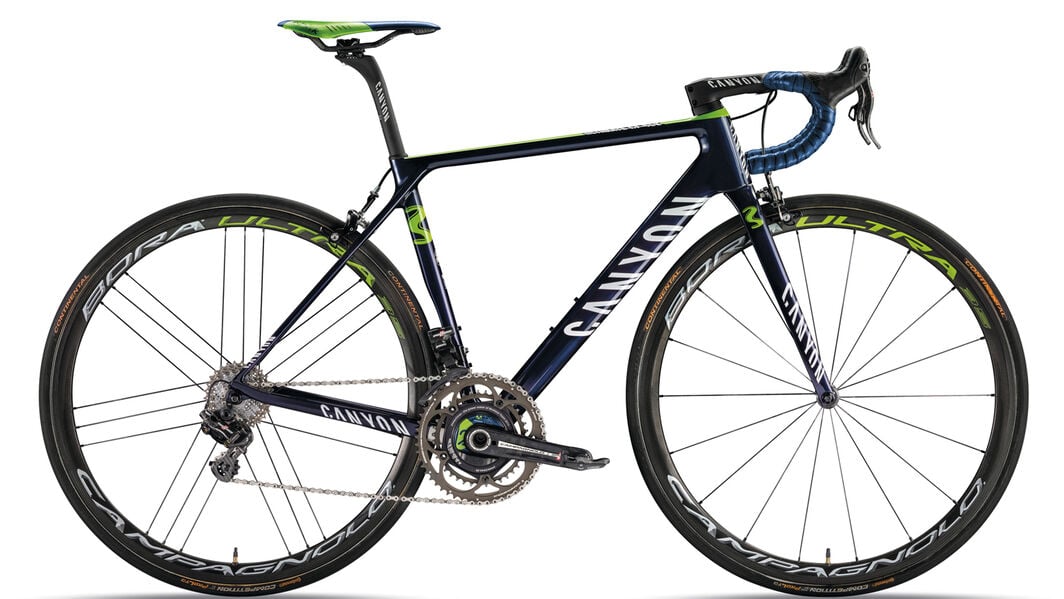
5th Generation Ultimate: Perfect balance
After so much research and development, it was time to think about how we could continue to evolve the bike into its fifth generation.
The aim of this model was to find the perfect balance between weight, stiffness, aerodynamics and durability. Was it even possible? We believe so.
Following the success of the Aeroad’s fully integrated cockpit, we equipped the fifth generation Ultimate with the same handlebars. We then honed the aerodynamics alongside Swiss Side in the wind tunnel. Stiffness-to-weight is maintained by premium carbon layups across the whole Ultimate family. We’ve also increased the tyre clearance to enable riders to commit to the rigours of real life riding in comfort. This is a bike that can do it all.
It’s not just the bike’s frame and components that are loaded with technological advances. Canyon is proud to be pioneers of engineering and that extends to our line of accessories. Designed to complement the clean lines of the bike, our first 3D printed GPS mount is available to buy exclusively from Canyon. At just 17g, this lightweight Garmin and Wahoo mount has been tested across the Flemish and Paris-Roubaix cobbles.
We’ve built the bike of the future to win races today such as the Tour de France, Tour de France Femmes avec Zwift, Vuelta a España and many more to come.
Lukas Birr is the lead engineer for the fifth generation Ultimate. Having toiled for three years on this bike, he’s relieved to see it in the hands of riders around the world. “Seeing the glow in test riders’ eyes when talking about their first ride, hearing feedback from the pros about their fondness of the bike, feeling my own sense of freedom and playfulness when conquering yet another hill in the early spring sun – all the headaches, all the cursing over broken prototype frames, all the endless meetings and negotiations, it was all forgotten,” he says proudly of the perfectly balanced Ultimate.
Of the incredible legacy of the Ultimate and how this next generation adds to the bike’s history he says, “it’s the instant smile when you move your bike along the first few metres. The versatile race machine that’s ready for whichever roads you throw at it. The elegant companion that draws attention thanks to its iconic appearance. The Ultimate is the only bike you will find yourself wanting to own.”
The legends of the Ultimate
Discover our Road Bikes
Did this article help?
Thank you for your feedback
